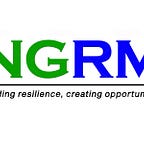Meeting Hezbollah and humanizing Lebanon
The horrific explosion on Tuesday, 4 August, in Beirut, which has resulted in more than 200 deaths and thousands of injuries, along with spiraling humanitarian needs across the country has brought back many memories for me.
Over the past week, I’ve been trying desperately to build media coverage of the event and the context, highlight marginalized voices, direct the media on lesser covered stories and generally being angry at the world for not paying enough attention to the Lebanese voices.
………..
Twelve years ago, I remember meeting my fixer outside a hospital in Dahieh, in southern Beirut.
As a young adult I was more than a little intimidated as he tucked his revolver into the front of his trousers before he took me around the Hezbollah-controlled neighborhood. “We need an insurance policy,” he said grinning at me. “We can’t have our Scottish visitor being hurt or intimidated.” He added wryly and “I love scotch.”
During the course of the next several days, he introduced me to various Hezbollah recruits and affiliated members, some telling me that they had recently returned from training in Iran, others — as young as about ten — declaring proudly to me that they would join Hezbollah to defend their country. And that the days of Hezbollah the terrorist group were in the past.
We traveled across the country — one senior Hezbollah member in the Bekaa Valley refused to meet me — as it was even then a time of geopolitical tension and need for secrecy. He did give me tea and lunch, however.
I met with many other political parties, members and groups over the course of that summer. Each had a different thing to tell me. For some the Saudi’s were arming the Sunnis covertly and there would soon be another civil war.
Others told me Hezbollah had become the master of propaganda and had managed to portray itself as the defender of Lebanon. Others warned Hezbollah would take the country to war with Israel again.
I traveled into Syria, several years before the start of the civil war, and learned of the perception of Hezbollah’s there. Again everyone had a different view.
I left Lebanon and Syria later that year utterly fearful for what would happen next in the country. How could there be so much confusion and who was right and who is wrong?
But reflecting on all the conversations, I recounted that everyone I met welcomed me enthusiastically. Some — otherwise living in poverty — embraced me with food. Others upon meeting me for the first time invited me to their wedding. All were proud to show me the beauty of their country.
I wasn’t afraid of being kidnapped or detained. People were delighted to meet me and learn that I wanted to know about the country.
I was struck by the amazing friendliness and warmth of the people I met.
………
The situation in Lebanon is incredibly complex and concerning. Everyone — across the patchwork of religions and communities — has a different opinion. Disinformation and mis-information are rife. People are scared. They are sad. They are mourning.
But amid the chaos I have seen so much warmth. One friend helping fellow protesters get released from jail. Others calling for humanitarian aid on social media and others opening their doors to those impacted by the explosion and the humanitarian crises.
Writing this from New York it is very easy to analyze Lebanon’s crisis within the prism of the Syrian conflict, corruption and geopolitics. Or label it as another “Middle Eastern crisis which doesn’t impact us {in the West}.”
But more than anything, I think it is important to highlight the voices of the amazing people across Lebanon who are calling for change for the future. To protect their children, their friends, their relatives and build a better future. Yes it is complex. Yes it has corruption. And yes there are horrific issues.
People across Lebanon once opened its doors to me — an ignorant foreigner from Britain.
Now it is offering support to families made homeless or injured by the explosion. Let’s hope that the sadness shows the need for change and for people working together to build a more resilient and prosperous future.
The world needs to humanize Lebanon. Yes they need change, but the people of Lebanon need to be the ones which make their future, with our support to provide them the tools and protection to do that.
